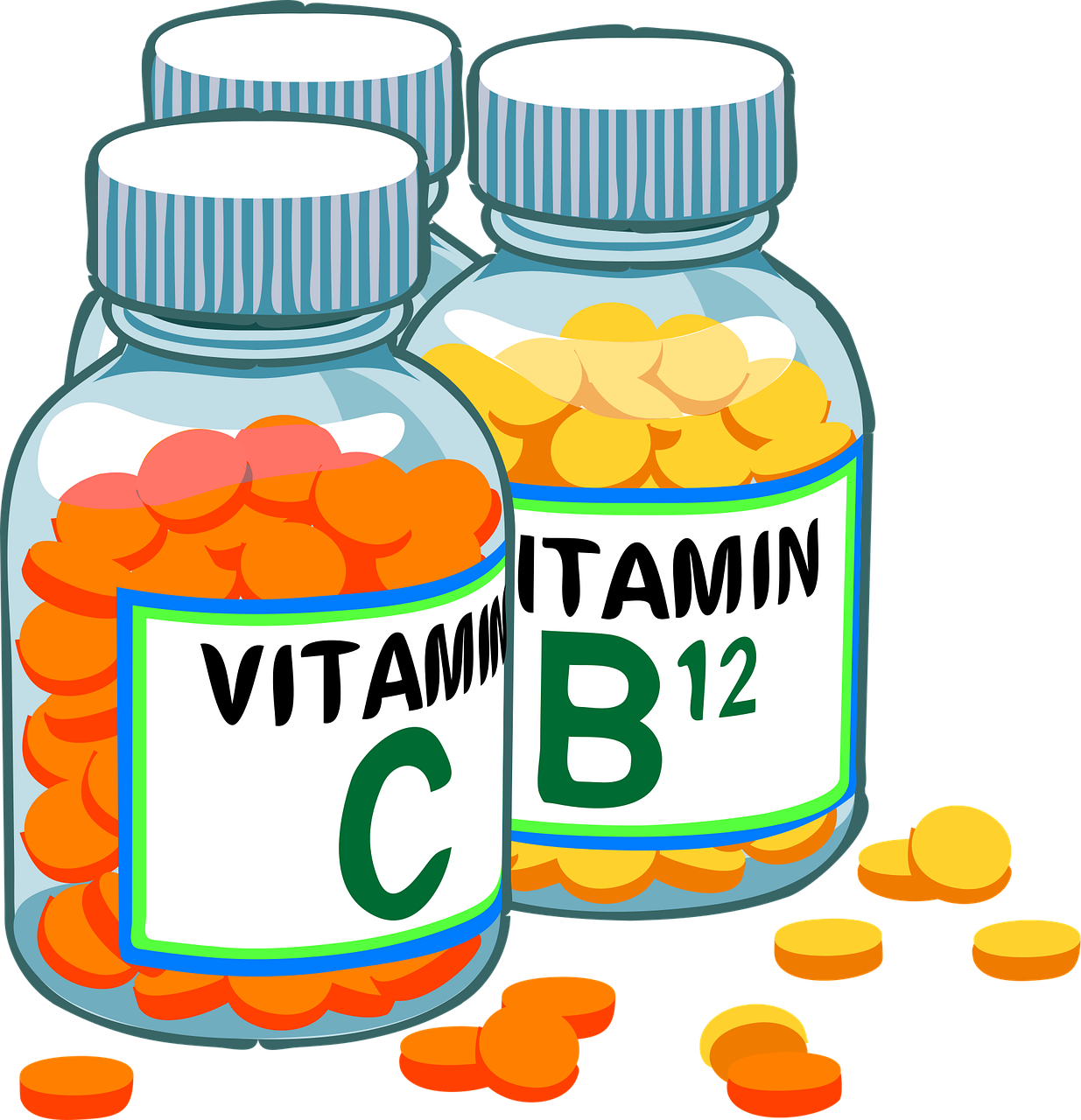This article was analyzed by Serge, MSc. Leveraging expertise in Biochemistry and Chemical Quality Control, I share insights and recommendations backed by research and clinical evidence to ensure you find safe and effective supplement solutions.

It’s wild how some people stay upbeat and focused no matter how busy life gets. Meanwhile, the rest of us are just trying to keep our eyes open before noon.
Well, it’s not about fancy gyms or some new diet trend. It’s the tiny habits they do every single day. Yeah, stuff that feels small or even pointless at first, but stack them over weeks or months, and boom, they add up big time.
This guide is about those small, almost invisible things: little risks that drain energy, simple routines that actually help, and micro-habits you can do without overhauling your whole life.
By the end, you’ll have a full-day plan that keeps your body moving, your mind sharp, and prevents those energy-sucking traps.
1. Hidden Risks in Daily Life
Look, we all hear “eat right, exercise,” right? But there’s a ton of stuff we do every day that quietly messes with energy and focus. Stuff you might not even notice.
Vaping or smoking weed occasionally, maybe it feels harmless, like “just once in a while.” But over months, it can affect lungs, focus, even memory. I’m not judging, just saying it adds up.
Sitting too long, we all do it. Desk job, scrolling your phone, binge-watching shows… it stiffens muscles, slows circulation, and even messes with metabolism. Those little aches? That’s your body waving a flag.
Screen overload, phones, computers, TVs. Staring for hours is tiring your brain and eyes more than you realize. You may feel fine, but energy and focus slowly drop.
Stress and bad sleep, skipping a wind-down, late nights, or just constant pressure. Hormones get messy, immunity dips, energy tanks. One rough night can throw off your whole day.
You don’t need to flip your life upside down. Even tiny tweaks, standing up for a few minutes each hour, taking a short walk, or leaving your phone alone before bed can actually make a difference. Seriously, small stuff really stacks up.
2. The Science of Micro-Habits
Micro-habits are tiny actions you repeat daily. By themselves, they seem meaningless. But do them over time, and weeks later? You’ll notice you’re sleeping better, thinking clearer, and just handling life more smoothly.
They’re super doable, even on busy days. No marathon sessions, no strict schedules. Just tiny, repeatable actions.
For your body, stretch a bit, move a little, drink water. Blood moves, muscles get used, brain works better. Sounds small, but it’s real.
For your mind, five minutes of journaling, breathing, or sitting quietly reduces stress, boosts focus, and makes your brain feel lighter.
For confidence, small wins build momentum. You start seeing you can take care of yourself, which makes bigger habits easier later.
Even 5 deep breaths, a quick walk, or one more glass of water a day adds up. Most people overthink routines, imagining super strict schedules or complicated diets. It’s the tiny things done consistently that make the biggest difference. No perfection needed, just stick with it.
3. Morning Routine: Kickstart Your Day
Mornings set the tone. But you don’t need a huge ritual.
Here’s something simple you can actually stick to:
Water first thing: 250–300 ml when you wake up. Lemon is optional. It wakes up digestion.
Move a bit: 5 minutes of gentle stretches, roll your wrists and ankles, twist your spine a little. Nothing crazy, just wake up the body.
Set an intention: Write one thing for the day like, “I’ll focus on finishing one task before checking my phone.”
Supplements: Vitamin D, omega-3, or whatever you take. Just have it with a little breakfast for better absorption.
4. Midday Maintenance: Staying Energized
You know that slump around 2 or 3 PM? Yeah, it hits most of us. But there are little tricks that actually help you dodge it. You don’t need a fancy energy drink, just small moves and smart choices.
Try this: every hour, stand up and move a little. Stretch, wiggle, or take a quick 5–10 minute walk. It might feel a bit silly at first, but trust me, it helps.
Snack smart while you’re at it: a handful of nuts, a piece of fruit, or some yogurt. Nothing fancy, just enough to keep your energy steady and avoid that sugar crash.
And don’t forget your brain! Two minutes of deep breathing, jotting down a quick thought, or listening to a short nature sound clip can do wonders.
5. Evening Routine: Recovery & Reflection
How you end the day matters just as much as how you start it. Your evening routine sets up tomorrow’s energy, stress levels, and even sleep quality.
Spend a few minutes journaling, just jot down wins, lessons, or something you’re grateful for. Don’t overthink it. Then, move your body gently. A short stretch or 5–10 minutes of light yoga helps melt away the tension you didn’t even realize was building up.
Phones and screens. Yeah, they can wait. Shutting them down 30–60 minutes before bed helps your body make melatonin, so you actually fall asleep faster.
Priya, a teacher I know, used to scroll her phone until midnight. Once she swapped that for 30 minutes of journaling and stretching, she started falling asleep faster and waking up feeling… genuinely refreshed. Her mornings became less of a battle, and she was more productive in the classroom.
6. Nutrition Beyond Basics
Let’s skip the generic “eat your veggies” lecture. Nutrition is easier when you focus on smart, practical choices.
Throw in foods that actually do something for you, garlic, berries, probiotic yogurt. They don’t just taste good; they support your gut and boost immunity. Try to layer meals so you have protein, healthy fats, and fiber together, it keeps energy steady instead of crashing mid-afternoon.
Hydration is underrated too. You don’t need to track obsessively, but little reminders, apps, or a bottle with hourly marks can make a huge difference. And when you snack, swap chips or candy for roasted chickpeas, nuts, or seeds. Your body notices the difference, trust me.
7. Supplements for Modern Lifestyles
Supplements can support energy, focus, and resilience, especially for busy schedules:
| Habit / Item | Frequency / Usage | Benefits / Notes |
|---|---|---|
| Leafy greens (spinach, kale) | Daily | Immune support, anti-inflammatory, bone health |
| Berries (blueberries, strawberries) | Daily | Antioxidants, brain health, reduce inflammation |
| Nuts (almonds, walnuts) | Daily / Snacks | Healthy fats, heart support, satiety |
| Fatty fish (salmon, mackerel) | 2–3 times/week | Omega-3 for brain and heart health |
| Whole grains (oats, quinoa, brown rice) | Daily | Steady energy, digestion support |
| Probiotic foods (yogurt, kefir) | Daily / Few times/week | Gut health, immunity boost |
| Garlic | Daily / Few times/week | Immune support, anti-inflammatory |
| Exercise (cardio/strength) | 30 min/day | Improves mood, energy, and cardiovascular health |
| Stretching / flexibility | 10–15 min/day | Reduces injuries, improves posture |
| Bodyweight circuits / resistance bands | 2–3 times/week | Strengthens muscles, boosts metabolism |
| Yoga / Pilates | 2–3 times/week | Flexibility, balance, stress reduction |
| Walking / Cardio | Daily / 20–30 min | Heart health, mood boost, energy |
| Mindfulness / meditation | 10 min/day | Lowers stress, improves focus |
| Gratitude journaling | 5 min/day | Boosts positive emotions, emotional resilience |
| Social interaction | Daily / Weekly | Reduces stress, improves happiness |
| Sleep | 7–9 hours/night | Restores mind and body, supports immunity |
| Outdoor exposure / Nature | 10–20 min/day | Improves mood, circadian rhythm, vitamin D |
| Screen-free breaks | 10 min/hour | Reduces eye strain, mental fatigue, improves focus |
| Omega-3 (fish oil / algae) | Daily / As directed | Brain, heart, and joint support |
| Vitamin D | Daily / As directed | Bone, immunity, mood support |
| Magnesium | Daily / As directed | Muscle relaxation, stress management, sleep support |
| Probiotics | Daily / Few times/week | Gut health, digestion, immunity |
| Multivitamins | Daily / As directed | Fill nutrient gaps, support overall wellness |
| Vaping / Smoking weed | Minimize / Occasional | Reduces lung, heart, and cognitive risks |
| Sedentary work | Active breaks hourly | Improves circulation, reduces stiffness |
| Stress management | Daily / As needed | Reduces cortisol, improves mental resilience |
8. Daily Schedule Example
Here’s a practical full-day schedule combining all micro-habits:
| Time | Activity | Purpose |
|---|---|---|
| 6:30 AM | Hydration + lemon water | Kickstarts metabolism |
| 6:35 AM | 5-min mobility | Wake muscles and joints |
| 6:40 AM | 5-min journaling | Mental clarity and intention |
| 7:00 AM | Breakfast + supplements | Fuel and nutrient support |
| 9:00 AM | Active break | Circulation and focus |
| 12:00 PM | Balanced lunch | Energy and satiety |
| 1:00 PM | Short walk | Reset mental focus |
| 3:00 PM | Healthy snack | Maintain blood sugar |
| 3:10 PM | Mindfulness break | Stress reduction |
| 6:00 PM | Exercise / home routine | Strength and cardio |
| 7:00 PM | Dinner | Nutrient-dense recovery meal |
| 8:30 PM | Screen-free wind down | Promote melatonin and sleep quality |
| 9:00 PM | Reflection journaling | Gratitude and mental processing |
| 9:10 PM | Light stretch / breathing | Relaxation and recovery |
| 10:00 PM | Sleep | 7–9 hours restorative sleep |
9. FAQs
Q: I’m crazy busy, can I actually fit these habits in?
A: For sure. These little habits don’t take long. You can stretch while the coffee’s brewing, breathe deeply while waiting for your ride, or jot down a quick thought between meetings. It’s more about slipping them into what you already do than finding extra time.
Q: What if I fall off track?
A: Happens to everyone. Missing a day or two isn’t the end of the world. Just pick it back up, progress always beats perfection.
Q: Where should I start with supplements?
A: Keep it simple. Notice what your diet might be missing first. Then maybe try one or two basics like vitamin D or omega-3s. Give it a few weeks and see how you feel before adding more.
Q: Do short breaks from screens even do anything?
A: Yep, they do. Just a few minutes away from your phone or laptop can reset your eyes and clear your head.
Q: When will I start noticing changes?
A: Honestly, some shifts show up pretty fast, maybe a bit more focus or less tension in a week or two. The deeper stuff, like better sleep or stronger immunity, builds up as you stay consistent.
10. Summary
Good health doesn’t happen from big, dramatic changes. It comes from the little things you do every day. If you cut out habits that wear you down, add simple routines that make you feel good, use supplements wisely, and focus on being consistent rather than perfect, you’ll start to feel better.
Your mind will be clearer, your energy will rise, and you’ll have more time and focus for the things that really matter. Start small, stick with it, and your future self will be grateful.












